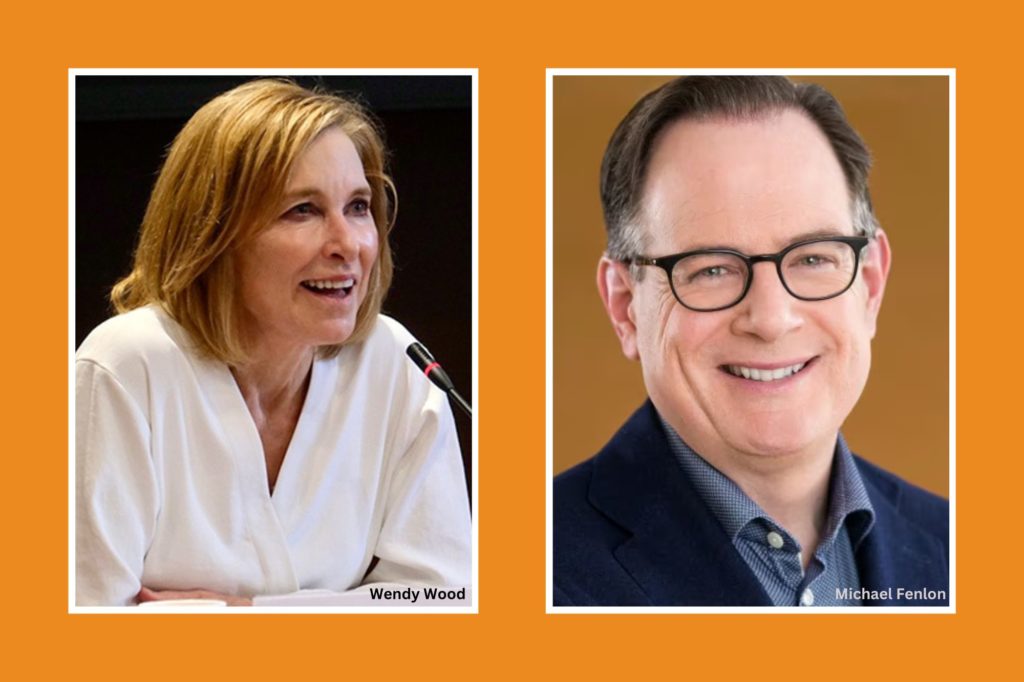Presidential Column
The Limitless Applications of Psychological Science

“I think there’s never been greater interest in and relevance and importance of translating rigorous research and academic scholarship for practitioners. There are significant gaps in helping business people—leaders and managers—access research-based insights in a digestible and systematic format.”
Michael Fenlon, PhD, Partner and Chief Future of Work Officer, PricewaterhouseCoopers (PwC)
In my last Observer column, I described the employment landscape for psychology PhDs. At graduation, only about 50% take academic jobs. Many of those are short-term, with about 40% postdocs and 10% faculty positions. When postdocs end, even more psychologists seek nonacademic employment. Ultimately, most psychology PhDs end up using their training in a job outside the academy.
Given this reality, students need to know how to prepare for and get nonacademic jobs, and faculty how to train students for such positions. With the majority of students in industry, government, consulting, technology, criminal justice, and healthcare, it is no longer feasible to orient graduate training toward a single, academic-research career model.

My columns explore these many job opportunities for psychology PhDs. Our science develops best through a flexible feedback system of basic research discoveries tested further through application to a range of real-world problems. While recognizing the limits of proprietary data and disclosure practices, I believe that research in basic and applied settings flourish by drawing on the other’s insights. The work done by psychology PhDs in all of these settings is a valuable scientific resource.
This column covers the highlights of my discussion with Michael Fenlon about his own professional trajectory. After earning a PhD in the Department of Social, Organizational and Counseling Psychology at Columbia University Teachers College, he went on to become a leader of one of the largest professional services firms in the world.
WOOD: How did you end up in your current position?
FENLON: When I started my career, I had zero interest in business. If anything, I was hostile to the idea. I was thinking of doing clinical work, and I trained as a psychotherapist. I completed an APA doctoral internship. I worked as a psychotherapist in mental health clinics in the Bronx and Brooklyn, but I found that, ultimately, consulting engagements and the challenges of leadership roles in business and higher education were more energizing for me and played more to my strengths.
WOOD: What led you to switch focus?
FENLON: A combination of experience, conversations with others, and deliberate reflection. So, not just sitting by myself waiting for insight, but conversations with individuals who were doing work that was interesting to me. That dialogue, in turn, clarified if this was something I wanted to learn more about or not. Second, I wanted the opportunity to learn through consulting projects. Instead of wondering what I was going to do with the rest of my life, I looked for projects where I could apply my skills, stretch in new ways, observe role models, and then get feedback and engage in deliberate reflection. Was the work energizing to me, motivating to me, playing to my strengths? Was it an area that I wanted to pursue? How could I grow, learn, and improve? And then, as I assumed different leadership roles at Columbia University, I started teaching at the business school and continued developing as a consultant. I realized that was a good fit for me.
Read all of the articles from the September/October Observer.
WOOD: You said that you weren’t positive about business to begin with, and I think a lot of students are also conflicted. Their training is for PhD scientists, but lots of hard-working, talented people end up doing other things than basic psychological research in an academic lab. How does one think about making that transition? How did you think about that? Or did it just evolve?
FENLON: First, I had some great role models. I worked with faculty members like Warner Burke, Peter Cairo, Sam Johnson, and Debra Noumair. In addition to research and writing, they valued practice, application, and consulting with leaders and organizations. That’s an important point, because it goes to both our sense of professional identity and what is respected and valued. If students perceive that a variety of career paths are not respected in their department, even implicitly, it’s obviously harder to explore and consider what might be best for themselves. I think there’s an element of identity and mirroring what is valued and respected within a department. I was fortunate because I had some fantastic role models across research and applied practice. To use the Shakespearean metaphor, so much of life is finding the right stage where your strengths will shine and then playing to those strengths.
WOOD: Many students seem uncertain how their skills will translate into a business setting. I think they underestimate what they have learned. What aspects of your psychology training have you drawn on in your career? What was useful and what wasn’t?
FENLON: Initially, I thought my background in psychology was of minimal relevance. I didn’t see the connections. And, of course, I was wrong on both fronts—prematurely thinking that a career in business would not be compelling and then assuming that my background in psychology would not be as relevant as it has been. I discovered it had profound relevance and value.
From a macro standpoint, I’ve worked as a consultant to organizations on strategy, leadership development, driving organizational change at scale, building inclusive cultures, and developing high-performing teams. There are many applications of psychology related to diversity and inclusion. Within teams and organizations, creating higher levels of trust and benefiting from diversity and inclusive cultures such that everyone can contribute to their fullest and feel a sense of belonging is a tremendous source of competitive advantage.
I joined PwC at a time when leaders wanted to understand the drivers of retention: What motivates people to stay and build a career with our firm? How could we strengthen our culture of care and belonging? What leads people to leave? How do we foster an inclusive culture? These are very basic and critical questions for organizations. I initially joined PwC as people strategy leader and subsequently held a variety of U.S. and global leadership roles, including chief people officer. People (or HR) functions are now expected to deliver a sophisticated level of insight around how you create cultures where people can thrive, as well as develop leaders and inclusive cultures where people can perform at the highest level and collaborate. What are the conditions for building trust and making the best decisions in teams? Applications related to hiring, progression, aligning rewards with desired outcomes, and learning and development, which are vital for helping individuals and organizations secure their futures. So, there are almost limitless applications of psychological science.
WOOD: All of your organizational questions are psychological ones and draw on many different aspects of basic research.
FENLON: Yes. If you’re running a business, you’re having to apply your own theories about psychology every day, whether they’re implicit or articulated, relative to recognizing talent, realizing potential, motivating and evaluating performance, building and facilitating teams, building trust inside the team, resolving conflicts, or working across cultures. This all extends to your ability to empathize with clients, customers, and employees; to understand their experience, expectations, and needs; and to incorporate those insights into your strategy, build alignment around the strategy, and drive large-scale change. All are enabled by technology and relate to understanding how technology interfaces with human psychology. Leaders today must adapt, transform, and drive change at accelerating rates.
On the point of being trained as a researcher, I think that’s an extraordinarily valuable skillset. The most effective managers today are launching experiments and adopting the mindset of science. They may not be doing double-blind randomized laboratory studies, but they’re launching experiments because so much of business is a race to learn. And it’s not just a matter of my gut instincts or who has the most power in the room. Modern organizations are driven by data and technology alongside human psychology.
Being trained in data analysis, in rigorous ways of thinking, and of challenging conventional wisdom—those are the skillsets of any scientist or researcher. Those are extraordinarily valuable in business today. And it’s part of what leads to innovation—not the genius on the mountaintop sitting by themselves, but really being able to extract insight from data, from a deep understanding of the human experience, running pilots or experiments before you scale. There’s huge demand in business for individuals who have skills and tools around data and analysis, combined with expertise in motivation, leadership, culture, team dynamics, decision processes, inclusion, and the use of AI technology and its applications.
I would want doctoral students and academic researchers to understand how extraordinarily valuable that toolkit is—outside of the academy as well.
WOOD: Yes, there’s practical utility in PhD training: How to think conceptually, think systematically, as you say, even think in terms of experimentation in real-world settings. That’s a wonderful way to frame innovation in industry—as constantly experimenting to see what works.
FENLON: Exactly. And then you’re course-correcting along the way. Before you place major bets, before you make major strategic decisions, you want to have as much insight as possible. For example, learning how to optimize hybrid work practices for knowledge workers and how to sustain positive outcomes for team and organizational performance.
Mental health and well-being has never been a greater focus in our society, and I think we’ve made progress destigmatizing the conversation. We’re not done with that, but we are seeing an explosion of innovation in addressing those needs.
I believe there’s an opportunity and an imperative for the profession of psychology to make its research findings even more accessible. We need to communicate not just via individual studies that might attract media attention or get highlighted on a podcast. We can better share our latest collective understanding and perspectives on psychological science and how we can apply it to improve the workplace, develop leaders and teams, innovate, and foster a more inclusive society.
Feedback on this article? Email [email protected] or login to comment. Interested in writing for us? Read our contributor guidelines.





APS regularly opens certain online articles for discussion on our website. Effective February 2021, you must be a logged-in APS member to post comments. By posting a comment, you agree to our Community Guidelines and the display of your profile information, including your name and affiliation. Any opinions, findings, conclusions, or recommendations present in article comments are those of the writers and do not necessarily reflect the views of APS or the article’s author. For more information, please see our Community Guidelines.
Please login with your APS account to comment.